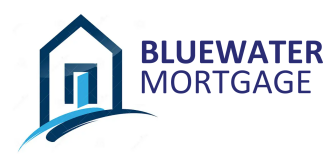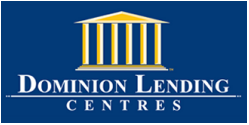When taking out a home loan in Canada, one of the most important decisions is whether to choose a fixed-rate or variable-rate mortgage. Both choices have specific benefits and drawbacks, making it vital to discern which may work best for your fiscal position. Whether buying your maiden home or re-mortgaging an existing home, your mortgage style can sway your budgetary steadiness for the seasons ahead.
At Bluewater Mortgage, we focus on assisting clients in navigating these critical choices, guaranteeing you receive the best possible rates and conditions tailored to fulfill your needs. Whether you opt for fixed or variable rates, our specialists provide expert steering throughout, smoothing the process of homeownership in Toronto or elsewhere in Canada.
What Is a Fixed Rate Mortgage?
A fixed-rate mortgage provides predictable payments throughout its term, typically 5 to 10 years. This consistency allows homeowners to confidently plan their budget as their principal and interest obligations remain static regardless of economic shifts.
When choosing a fixed-rate mortgage, the borrower locks in a predetermined interest charge that holds steady for the loan’s duration. Lenders base monthly installments on this locked-in rate, the borrowed amount, and the term length. As the rate stays fixed, homeowners enjoy stable and foreseeable monthly obligations, simplifying long-term fiscal strategy, especially in uncertain times.
Fixed-rate deals are particularly popular in metropolitan areas like Toronto, offering peace of mind through predictable installments. At Bluewater Mortgage, we help clients secure the most profitable fixed rates, allowing them to benefit from enduring monetary security while navigating the loan process through an easy and transparent experience.
Advantages and Disadvantages of Fixed Rate Mortgage
 Advantages of Fixed Rate Mortgage
Advantages of Fixed Rate Mortgage
Stability and Peace of Mind
One of the primary benefits of fixed-rate mortgage is that it allows the homeowner to feel certain predictability and comfort in knowing that their monthly payments will not change. This makes it easier to manage one’s budget and can help alleviate some of the stress that comes with the possibility of an increase in interest rates.
Budgeting Control
This is because fixed mortgage payments imply that people can make their monthly and yearly budgets without worrying about changes, which can positively affect their psychological state and decrease their concern about future changes.
Consistent Payment Amounts
A fixed-rate mortgage ensures that the interest rate on the loan does not change throughout the agreed-upon period, resulting in constant and steady monthly payments. This kind of mortgage is especially appropriate for those who value their financial security.
Disadvantages of Fixed Rate Mortgage
 Perception of Financial Rigidity
Perception of Financial Rigidity
Some homeowners believe that the fixed-rate mortgage puts them in a financial straight jacket, and they cannot adjust to changes in their circumstances or technological advancements in the housing market. This psychological constraint can lead to stress and dissatisfaction, especially if they feel they can get better remunerations elsewhere.
Less Flexibility
One of the disadvantages of fixed-rate mortgages is their lack of flexibility. Should interest rates plummet dramatically, one will not benefit from the lower prices until refinancing, which might involve additional expenses and penalties. Such rigidity risks bypassing potential savings through no fault of one’s own.
Higher Initial Interest Rates
Fixed-rate mortgages often have higher initial interest rates than variable rates. This means that homeowners could be paying more in interest from the start, impacting their monthly payments and overall financial planning.
Economic and Regulatory Constraints
The features of fixed-rate mortgages depend significantly on economic factors and legislation. During periods of low interest rates and high economic risk, regulatory policies can either promote or discourage borrowers from selecting fixed-rate products, affecting the market and product availability.
What Is a Variable Rate Mortgage?
A variable rate mortgage differs from a fixed mortgage in that its interest rate fluctuates according to alterations in the lender’s prime rate, which is influenced by shifts in the Bank of Canada benchmark rate. As the prime rate escalates or declines, your mortgage interest rate and monthly installments will adapt suitably.
At Bluewater Mortgage, we guide borrowers to perceive variable mortgages’ potential impacts thoroughly, empowering informed judgments attuned to fiscal aims and market developments. Our specialists delineate likely scenarios to help prevent future shocks from fluctuating rates, keeping clients’ finances securely anchored in whichever direction costs drift.
Variable Rate Mortgage Advantages and Disadvantages
 Advantages of Variable Rate Mortgage
Advantages of Variable Rate Mortgage
Flexibility in Payment Options
Variable-rate mortgages are usually more flexible than fixed-rate mortgages because the borrower can make additional payments or pay more than the required amount without being penalized. This can help pay off debts faster and at a cheaper interest cost and give them the feeling of being financially free.
Lower Initial Interest Rates
One of the primary benefits of variable-rate mortgages is that they usually have lower initial interest rates than fixed-rate mortgages. This can lead to smaller first monthly payments, enabling the borrowers to borrow higher amounts or manage their monthly cash flow better.
Interest Rate Discounts
Variable-rate mortgages are usually cheaper than fixed-rate mortgages, and financial institutions may offer a discount on the variable rate to attract borrowers. These discounts can provide an instant interest rate cut and, in the long run, may be more beneficial if market conditions persist. This fits into other economic factors and competitive strategies among lenders.
Disadvantages of Variable Rate Mortgage
Psychological Stress and Uncertainty
Selecting a variable-rate mortgage can create a lot of pressure and insecurity for homeowners. The fact that the monthly payments are not fixed can be stressful and cause significant financial concerns when interest rates change. This psychological burden may impact general health and decision-making.
Cultural Emphasis on Stability
In most cultures, people believe owning a home is one of the most secure things one can do. A variable-rate mortgage can counter these cultural values because of the uncertainty inherent in the product. This uncertainty can affect household decisions and may lead to family conflict.
Inconsistent Monthly Payments
The main disadvantage of variable-rate mortgages is that the monthly payments are not fixed. Variable rates, on the other hand, can fluctuate depending on market conditions, unlike fixed-rate mortgages, where the interest rate is fixed. This can lead to a situation where the monthly expenses go up without prior notice, which may be hard for some families to cope with.
Key Factors to Consider When Choosing Between Fixed and Variable Mortgages
Financial Stability and Future Planning
Financial stability in the present and future is also a factor that should be considered. Fixed rates offer a steady and constant monthly payment, ideal for long-term planning, especially for those with a limited budget or many expenses to meet.
Interest Rate Trends
Interest rates fluctuate historically. Interest rates can be variable or fixed, and historical data can be used to make decisions. Variable rates can be beneficial when rates are low.
Amortization Period Impact
Comparing the historical and expected interest rates allows for evaluating the advantages of fixed and variable rates. Interest rates can be learned from history and may vary; the length of the mortgage determines the total cost. Fixed rates may be more suitable for extended amortization periods because of their stability. In contrast, variable rates may be more beneficial for shorter periods, taking advantage of lower initial rates.
Cultural Attitudes Towards Debt
Debt is a cultural construct that affects mortgage decisions. Societies more concerned with financial stability and certainty are likely to prefer fixed rates, while those more open to risk are likely to prefer variable rates.
Community and Peer Influence
It is also important to note that other people’s and the community’s experiences can influence decisions. Observing others’ mortgage choices and outcomes within a social network can have a significant influence.
Regulatory Environment
Government policies and regulations influence mortgage choices. Interest rate ceilings and mortgage rate tests affect the appeal and availability of fixed- and variable-rate mortgage loans.
Economic Conditions
Economic factors such as inflation and employment rates influence mortgage rates and choices. Variable rates may be preferred when the economy is stable, while fixed rates may be preferred during an unstable economy.
Which is Better for You?
Choosing the appropriate home loan relies on one’s willingness to accept risk and fiscal objectives. A fixed-rate mortgage suits those who prefer steady monthly payments and are averse to market unpredictability. However, a variable-rate mortgage could conserve funds for those comfortable accepting fluctuating bills and hoping to gain from decreasing rates soon.
At Bluewater Mortgage, our agents thoroughly discuss clients’ risk endurance and long-haul economic visions, ensuring they choose the most fitting loan for their distinct condition. We recognize that no two fiscal situations are alike and work diligently to comprehend each client’s unique needs to recommend options in their best interests, whether a standard fixed rate or a variable option, leaving room for opportunity.
Conclusion
Choosing between a Variable vs Fixed Rate Mortgage for a home loan in Canada is a decision that depends on personal priorities, risk tolerance, and economic conditions. Fixed rates offer predictability and help plan long-term budgets without reacting to shifting markets. On the other hand, variable rates can potentially reduce interest costs when rates decline, making them a beneficial option for some. However, they do require flexibility to handle monthly payment variations.
Consulting mortgage experts like Bluewater Mortgage is essential to guaranteeing the right home loan type for individual needs. By comprehending the pros and cons of variable rate and fixed mortgage rates in Canada, one can make an informed choice that is aligned with financial goals down the road.



